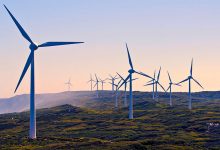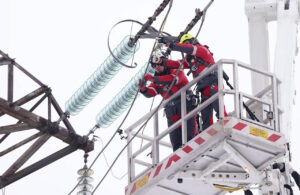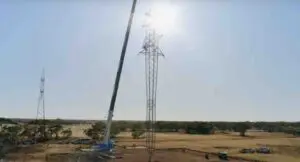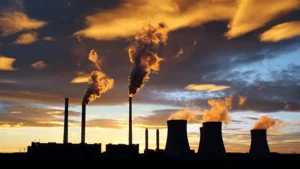Wind energy could supply more than one third of global electric power demand by 2040 and could, in turn, save up to four million lives a year, according to a new study from professional services network KPMG and commissioned by wind turbine manufacturer Siemens Gamesa Renewable Energy.
The new study – entitled The socioeconomic impacts of wind energy in the context of the energy transition– was published last week in an effort to highlight the wider benefits of wind energy adoption around the world.
The report concludes that accelerating the uptake of wind energy would not only reduce our reliance on fossil fuels, but would slash pollution, save lives, and preserve vital water resources.
It says wind energy is a key to achieving an effective energy transition away from fossil fuels and that wind energy’s power supply could be nine times greater than it is currently – growing from supplying 4% of global electric power today to 34% by 2040.
In turn, wind energy could provide around 23% of the carbon emission reductions necessary in 2050 – 5.6 billion tons of CO2, or equivalent to the annual emissions of the 80 most polluting cities.
On top of that, however, there are a myriad of secondary benefits that wind energy could have on the world.
For example, the report found that wind power could save up to 16 billion cubic meters of water in 2030 – around 15% of the Dead Sea water, for example – and that in Europe alone, it would avoid the use of 1,571 million m3 (the equivalent consumption of 13 million EU households).
The wind industry would also be in a position to employ three times more people than it does today – with an industry workforce growing from 1.1 million to 3 million people, including both direct and indirect jobs.
“The energy transition in essential to achieve the UN’s 2030 Agenda for Sustainable Development,” said Markus Tacke, CEO of Siemens Gamesa Renewable Energy.
“Universal and affordable access to electricity will empower millions of people around the world and their communities to enjoy a better life. But avoid the worst impacts of climate change, energy will have to be carbon-free.
“In this context, renewable energy has a major role to play in putting the world on a sustainable path as it will cut emissions, improve air quality, save water, create good paying jobs and save lives.
“What’s required is a wholesale deployment of wind and solar technologies to meet the growing clamour from consumers and from investors for an energy mix that’s 100% renewable. And the economic feasibility of the energy transition is right before us.
“Wind power is ideally positioned to lead that transition, as it is at the cutting edge of technological innovation, driving costs down and market penetration up. In recent years wind energy has become cost competitive with fossil fuels. That’s due to new manufacturing methods and bigger, better, more efficient turbines.”
Speaking at the launch of the report, Tacke also implored young people to choose a STEM career – a career in Science, Technology, Engineering, or Mathematics.
“You can do something. You can choose to be the one that will make change happen. Choose STEM,” he said. “Choose a career that will turn your curiosity and passion for change into solutions. Solutions that we need now, and which we will need even more tomorrow.”
“By contributing to the mitigation of climate change, the wind energy sector is already making a significant contribution to sustainable development,” added Miguel Arias Cañete, European Commissioner for Climate Action and Energy.
“Furthermore, the wind sector represents more than 300,000 EU jobs, a number which will continue to rise as we move towards net zero greenhouse gas emissions.
“These are often high-quality jobs, which contribute to local employment in rural or disadvantaged areas. Furthermore, replacing fossil fuel dependency with wind power will have a direct impact on the EU’s air pollution, which is estimated to cause almost half a million premature deaths per year.”










